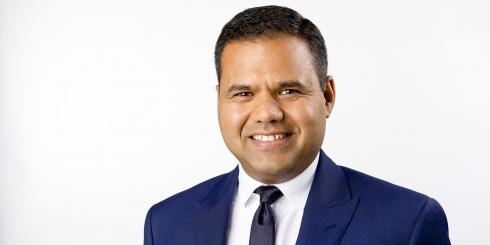Exclusive: ‘EU will remain our key trading partner’, says London’s Deputy Mayor for business

Last week it was announced that the rapid rollout of Covid-19 vaccines has led to business confidence hitting its highest levels in three years.
The increase has been driven by the success of the vaccine rollout, especially in the UK, which has left firms more confident that restrictions will soon be lifted.
Despite the increased confidence, UK’s GDP did drop by 2.9 per cent in January as a fresh national lockdown took hold of the UK economy. Moreover, businesses across London have to deal with market conditions post-Brexit.
To discuss Brexit resilience among London’s SME and the road to recovery post-pandemic, City A.M. sat down with Rajesh Agrawal, the Deputy Mayor of London for business.
Born in India, Agrawal moved to London in 2001 and founded money transfer firms RationalFX in 2005 and Xendpay in 2014 before he was appointed Deputy Mayor for business in 2016.
Many owners of small businesses across London say the challenges of the pandemic are being compounded by the disruption of Brexit. Three months into the post-Brexit era, do you think the impact on small businesses is here to stay?
The impact of the pandemic means many businesses were simply unable to give Brexit the time and attention it deserved. In January, research by the Federation of Small Businesses found Brexit and the ongoing coronavirus restrictions would cause more than 250,000 small firms to fold without further government support. While some of the changes to the business landscape will be permanent, SMEs can be proactive in building resilience and ensuring disruption due to Brexit is minimized.
The government is promoting Global Britain, however, focusing on emerging economies to trade with, has City Hall adopted the same strategy?
There’s no doubt that the trade deal with the EU is not a good one, and in particular left out key economic sectors like our world-leading financial services. We are taking active steps to safeguard the global opportunities for London’s businesses and retain the thriving trading partnerships they have around the world. London & Partners will continue to bang the drum for London as a world-leading place to do business and invest, with teams in India, China and North America – and across Europe – dedicated to developing these opportunities.
There’s no doubt that the trade deal with the EU is not a good one
However, in the EU we also have the world’s largest trading bloc right on our doorstep and we have incredibly strong trade and cultural links already. While there is likely to be a reduction in trade with Europe as a result of the new trade deal and continuing uncertainty for London’s services industry around future access to EU markets, I’m absolutely confident the EU will remain our key trading partner. That’s why the Mayor and I will continue working for the UK and EU to have a much closer relationship in the future.
What does City Hall do to minimise any post-Brexit disruption for SMEs across the capital?
Brexit has changed the economic landscape for all SMEs. We’ve worked with businesses throughout the Brexit process to ensure they have access to the most up-to-date information and guidance. Although we’ve now left the EU, we are working with SMEs to help them understand how the new EU-UK relationship will affect them. Our resources are helping them navigate areas such as trade, employment law and tax regulation. And through the London Business Hub, the Mayor is also offering dedicated Brexit resources to help SMEs in areas including trading with the EU, changes to tax status and employing foreign workers.
The impact of the pandemic means many businesses were simply unable to give Brexit the time and attention it deserved
More widely, the Mayor is supporting hundreds of small companies through the Back to Business Fund and Pay It Forward London scheme, through which Londoners can support their favourite local or independent businesses which are struggling with the challenges of Covid-19. Since the start of the pandemic our Business Hub has also supported nearly 1,500 businesses and offered more £1m in grant funding. A further £11m has been allocated to help London’s skills providers continue to help Londoners gain the skills they – and the capital’s employers – need.
Finally, we are fast approaching the pandemic’s first anniversary, at least since the first lockdown started.
We know facing the dual challenges of Brexit and the Covid-19 pandemic is a daunting task for London’s businesses. There’s no doubt SMEs are the lifeblood of London’s economy and the strength of their recovery will play a massive role in the economic recovery of the capital.
Limited resources, staff, money and time, mean SMEs have felt the impact of the pandemic acutely over the past year
With the highest number of SMEs anywhere in the country, London’s business environment has been among the hardest-hit. After the first wave of Covid, SMEs lost an estimated £17,000 in revenue, around £5,000 more than the national average.